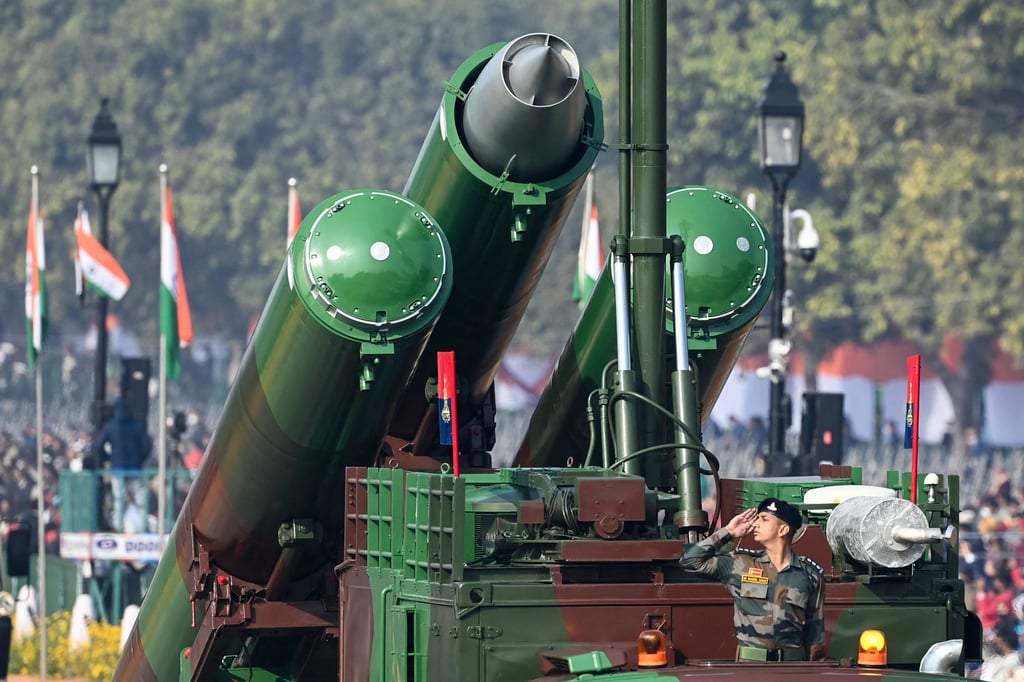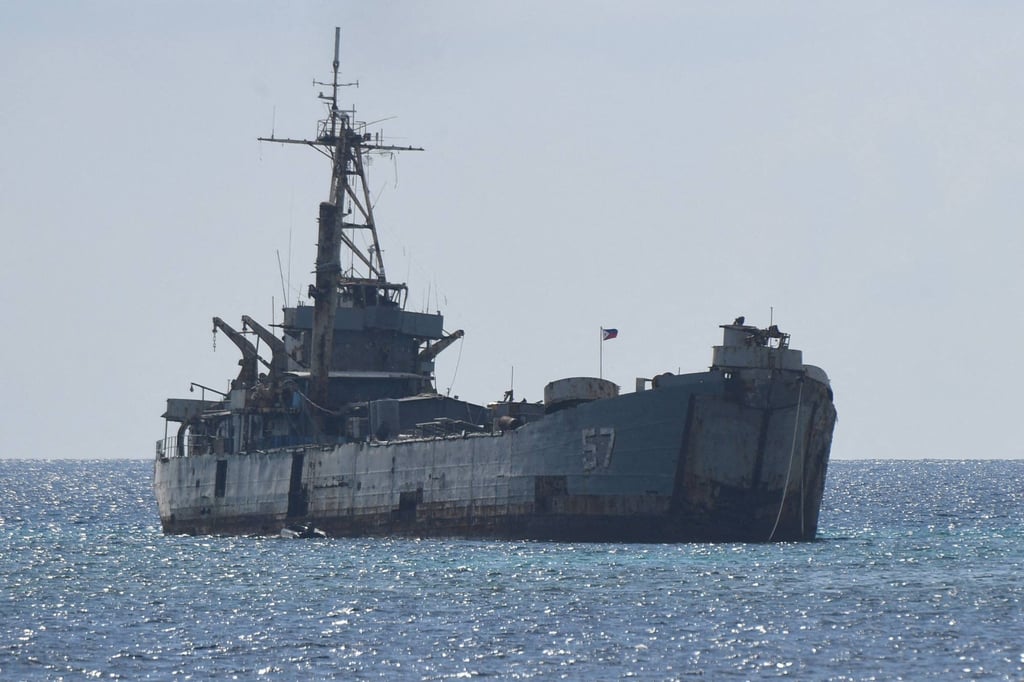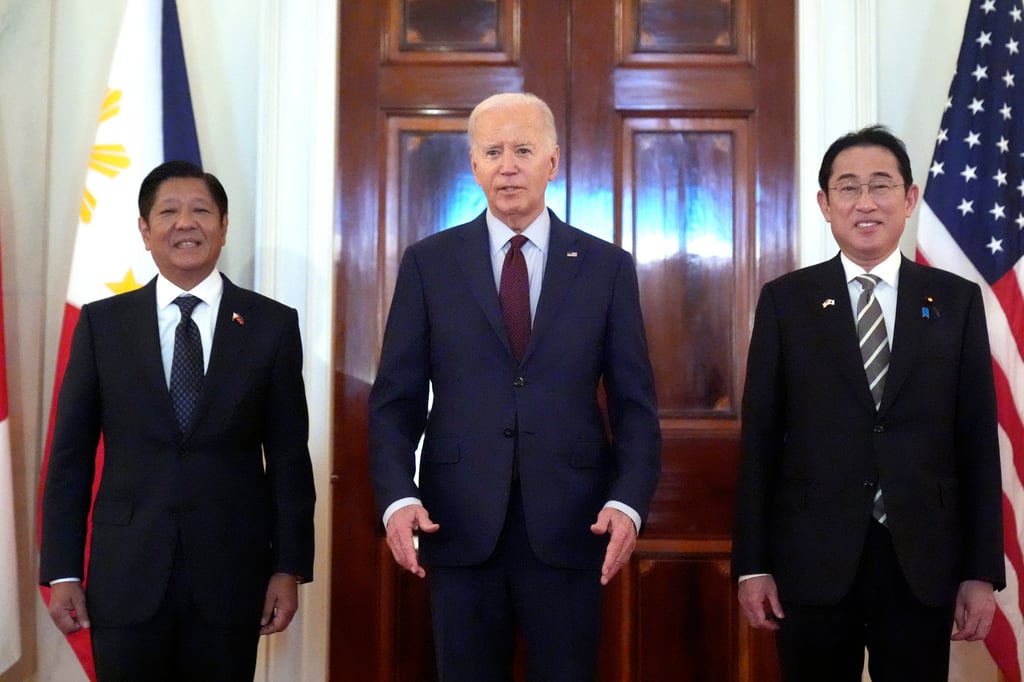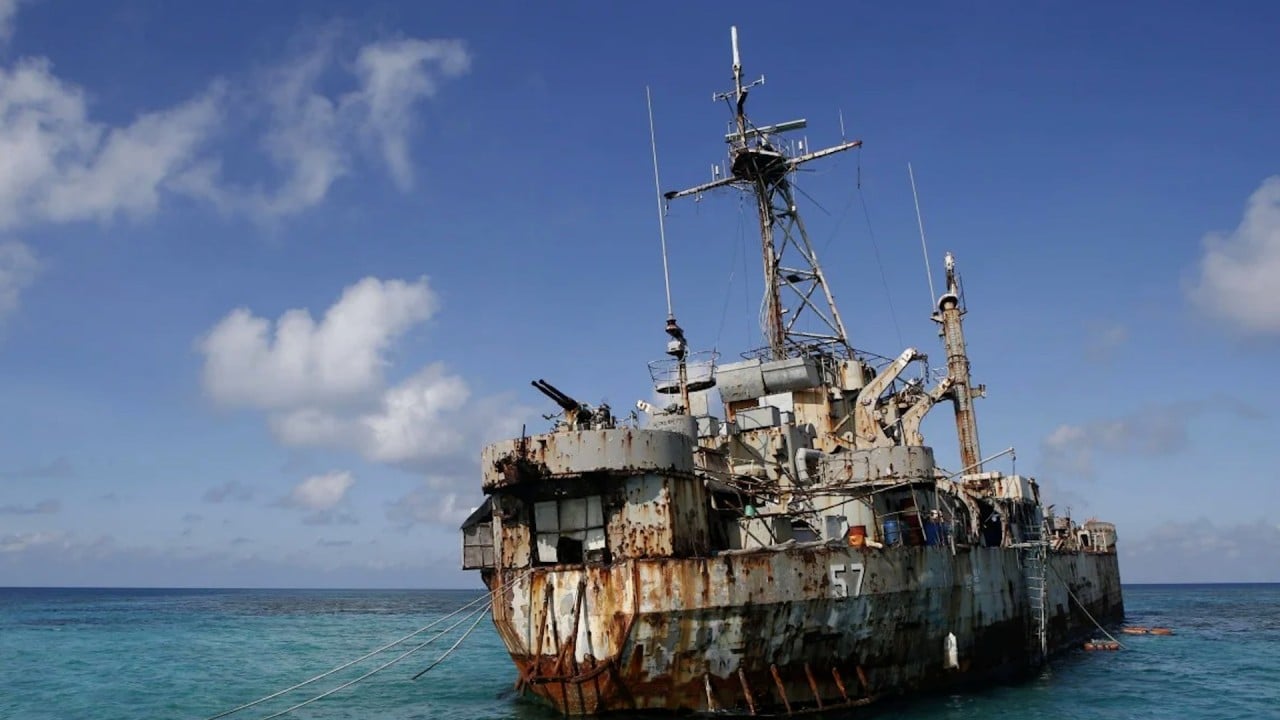South China Sea row high on Quad agenda with ‘message’ aimed at Beijing
Without naming China, the joint statement said the Quad was “seriously concerned about the situation in the East and South China Seas”, reiterating its “strong opposition to any unilateral actions that seek to change the status quo by force or coercion”.
The foreign ministers voiced serious concern about the militarisation of disputed features and coercive and intimidating manoeuvres in the South China Sea, including the dangerous use of coastguard and maritime militia vessels.

China and the Philippines have clashed on several occasions in the disputed waterways in recent months, with Chinese personnel deploying water cannons, boarding Philippine vessels armed with axes and machetes and destroying equipment to disrupt Manila’s resupply missions to the Second Thomas Shoal.
Asked about the statement at a regular news briefing on Monday, Chinese foreign ministry spokesman Lin Jian said the Quad was “artificially creating tension, inciting confrontation and containing the development of other countries”.
Satoru Nagao, a non-resident fellow at the Hudson Institute based in Washington DC, said the South China Sea issue was mentioned in the fifth paragraph of the joint statement, in contrast to the 29th paragraph in the statement issued after last May’s Quad leaders’ summit.
“This is a message to China that Quad is concerned about escalating China’s activities against the Philippines,” Nagao said. The first-ever mention of the 2016 arbitral tribunal in the fifth paragraph was an important development, with its mention of “a significant milestone and the basis for peacefully resolving disputes between the parties”, he added.
adding that the first-ever mention of the 2016 arbitral tribunal in the fifth paragraph was “a significant milestone and the basis for peacefully resolving disputes between the parties”.
The Permanent Court of Arbitration in The Hague ruled in 2016 that China’s claim of historic rights to resources within its so-called nine-dash line in the contested waters had no basis in law.
All four Quad countries are also providing military support to the Philippines, Nagao said, noting that the US was increasing deployment to the Philippines, including intermediate-range Tomahawk missile launchers, while Australia had deployed military forces in the Southeast Asian country.

Under a recently signed treaty, Japan will deploy fighter jets and naval ships to Manila. With the delivery of India’s Brahmos supersonic missiles to the Philippines in April, Chinese naval ships also faced a threat from these weapons, said Nagao, adding that such pressure on China would be a good deterrent.
On Tuesday, the US pledged to modernise the Philippines’ military with US$500 million in funding, a move Defence Secretary Lloyd Austin described as a “once-in-a-generation investment”.
Troy-Lee Brown, a research fellow at the University of Western Australia’s Defence and Security Institute, said there were several encouraging initiatives on cyber and artificial intelligence.
The Quad will appoint cyber ambassadors to meet and discuss capacity-building projects and responsible state behaviour in cyberspace, according to the joint statement. The projects include an international conference on such cyber capabilities to be held in the Philippines and a cyber boot camp in India.
Quad countries also commit to further deepening international cooperation on artificial intelligence systems and interoperability between artificial intelligence governance frameworks, the statement added.
But the most encouraging outcome was the creation of a Quad legal dialogue to boost international law expertise on maritime issues, Lee-Brown said.
The dialogue was aimed at supporting the Quad’s efforts in upholding the rules-based maritime order in the Indo-Pacific region, the statement noted.
The Indo-Pacific Partnership for Maritime Domain Awareness (IPMDA) also continued to expand, with stronger links forged with the Information Fusion Centre-Indian Ocean Region (IFC-IOR), Lee-Brown said.
Announced in May 2022, the IPMDA is a forum for sharing maritime information aimed at combating illegal fishing and strengthening the maritime surveillance capabilities of countries in the Pacific and Southeast Asian region.
The IFC-IOR is a regional maritime security centre hosted by the Indian Navy tasked with boosting maritime security and safety in the Indian Ocean.
Eleanor Shiori Hughes, a non-resident fellow at Chicago-based economic research think tank EconVue, said the joint statement’s language expressed Quad members’ concerns about China’s “relentless muscle-flexing across the region” and how the global security environment was becoming more “perilous”.

However, it was important that “the Quad continues to promote a narrative that it has not lost sight of its origin story of providing public goods and resources to those who truly need it in the Indo-Pacific”, Hughes said.
Originally focused on security cooperation to counter China’s influence, the Quad has over the past few years added initiatives such as delivering vaccines and test kits during the pandemic, building infrastructure, bolstering cybersecurity and providing humanitarian help and disaster relief.
Quad leaders’ meeting
The discussions in Tokyo have set the stage for the Quad’s leaders to meet, Hughes said. Should such a meeting take place, it is likely to be scheduled after the US elections in November, according to Hughes.
“Now that US President Joe Biden officially dropped out of the 2024 presidential race, his attention span is fixated on domestic agenda items and ensuring that he lays the groundwork for [Vice-President] Kamala Harris to carry on his legacy,” she added.
This year’s Quad leaders’ summit was originally slated to be held in India in January but did not occur as Biden was unable to attend.

University of Western Australia’s Lee-Brown said it was unlikely that Indian Prime Minister Narendra Modi’s meeting with Russian leader Vladimir Putin in Moscow earlier this month would have dampened the outcome of this week’s Quad meeting or the chances of any future leaders-level meeting.
“Australia, Japan and the US are diplomatically agile enough to work closely with India on issues where they align and express concern on issues where they don’t,” Lee-Brown added.
Despite Russia’s international isolation and sanctions against it over its invasion of Ukraine, India has refrained from criticising the Kremlin, continued to pursue diplomacy with Moscow and bought Russian oil, prompting concerns that New Delhi’s moves are not in line with the positions of other Quad members.
